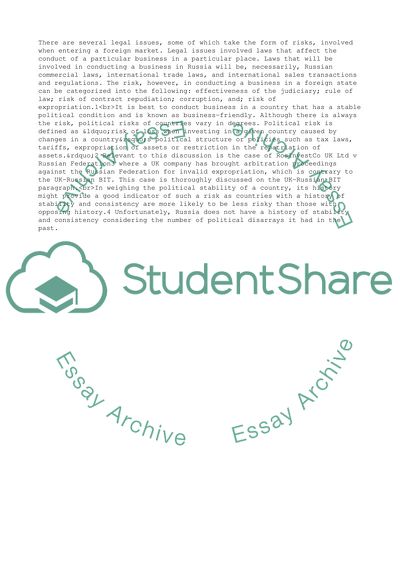Cite this document
(Weighing the Possible Issues Involved in Exporting Chocolates to Research Paper - 1, n.d.)
Weighing the Possible Issues Involved in Exporting Chocolates to Research Paper - 1. Retrieved from https://studentshare.org/business/1750314-international-business-law
Weighing the Possible Issues Involved in Exporting Chocolates to Research Paper - 1. Retrieved from https://studentshare.org/business/1750314-international-business-law
(Weighing the Possible Issues Involved in Exporting Chocolates to Research Paper - 1)
Weighing the Possible Issues Involved in Exporting Chocolates to Research Paper - 1. https://studentshare.org/business/1750314-international-business-law.
Weighing the Possible Issues Involved in Exporting Chocolates to Research Paper - 1. https://studentshare.org/business/1750314-international-business-law.
“Weighing the Possible Issues Involved in Exporting Chocolates to Research Paper - 1”, n.d. https://studentshare.org/business/1750314-international-business-law.


